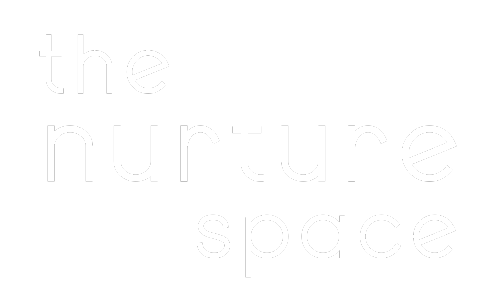Emotionally Focused Therapy for Couples
Niki Gelekis from The Nurture Space offers Emotionally Focused Therapy (EFT) for couples. EFT is a structured approach that enhances emotional intelligence and uncovers unexpressed feelings in relationships. The goal is to deepen the emotional connection between partners by helping them express and understand their core emotions.
Through EFT, couples are assisted in identifying and transforming the emotional dynamics that influence their interactions. By focusing on these underlying emotions, the root causes of conflict and detachment are addressed, leading to stronger, healthier relationships.

The Birth of Emotionally Focused Couples Therapy
Emotionally Focused Couples Therapy (EFCT) is based on attachment theory, highlighting the need for secure emotional bonds in adult relationships. Research supports EFCT's effectiveness in enhancing and sustaining intimate relationships by fostering secure attachment.
Power of Emotionally Focused Therapist in Adelaide
The Nurture Space offers Emotionally Focused Couples Therapy (EFCT) to help couples establish or regain a sense of safety and security. Through structured sessions, couples identify and transform patterns that lead to emotional disconnection, strengthening their bond and fostering a more supportive relationship.
How Emotionally Focused Therapy for Couple Works
EFT involves a structured process that typically includes identifying negative interaction patterns, exploring underlying emotions, and developing new ways of responding to each other. Sessions usually involve:
- Emotionally Focused Conversations: Couples are guided to express their deepest feelings and needs.
- Reframing Negative Patterns: The therapist helps partners understand and alter destructive behaviors.
- Creating New Interaction Patterns: Couples practice new, positive ways of interacting.
This process helps couples improve their relationship by fostering a better understanding of each other's emotional experiences and promoting more supportive interactions.

EFT’s Approach to Relationship Distress
In EFT, relationship distress stems from entrenched negative interaction patterns driven by unacknowledged emotions. EFT practitioners help couples identify and understand these destructive cycles and the underlying fears and needs. By addressing these emotional roots, EFT aims to break down barriers to communication and foster mutual understanding.

Addressing the Core of Emotional Distress
EFT focuses on breaking negative patterns and addressing the underlying emotional distress. Couples reprocess their emotional responses in a supportive setting, leading to new, positive interaction dynamics. The goal is to transform the relationship from one of distress to one of security and mutual support.
Benefits of EFT for Couples
EFT offers numerous benefits, including:
- Enhanced Emotional Connection: Couples often report a deeper emotional bond and increased intimacy.
- Improved Communication: EFT helps partners communicate their needs and feelings more effectively.
- Conflict Resolution: The therapy provides tools for resolving conflicts constructively.
- Increased Relationship Satisfaction: Many couples experience greater overall satisfaction and stability in their relationship.
The Importance of Secure Attachment in Relationships
Secure attachment is key to healthy relationships. EFT aims to cultivate or restore this attachment, essential for long-term satisfaction. By fostering secure bonding, EFT enhances intimacy, trust, and open communication between partners.
Benefits of Secure Attachment
Secure attachment provides emotional stability and helps couples handle life's challenges. EFT strengthens these bonds, fostering safety and connection. This secure base enhances individual well-being and relationship health, leading to a lasting, healthy partnership.

Improving Communication and Relationships in Families
In family therapy, EFT aims to improve communication and resolve conflicts by fostering an understanding of the underlying emotional needs and responses of each member. Through the therapeutic process, family members learn to express their emotions more effectively and respond to each other in ways that reinforce their bonds.
This not only alleviates current conflicts but also equips families with the tools to manage future challenges more constructively, enhancing the overall family dynamic and strengthening the emotional connections between members.
Rebuilding Connection and Understanding
The goal of EFT in addressing marital distress is not just to resolve conflicts but to foster a deeper understanding and connection between partners. By focusing on emotional difficulties and the negative emotions that often sabotage relationships, EFT helps couples rebuild their emotional connection.
The therapy encourages couples to engage in new, healthier interaction patterns that promote emotional closeness and understanding. As these new patterns solidify, couples experience a significant improvement in their relationship quality, leading to renewed intimacy and a strengthened marital bond.

EFT and Individual Therapy

Secure attachment is fundamental to the development and maintenance of healthy, balanced relationships. EFT aims to cultivate or restore this sense of secure attachment among couples, believing it to be essential for relational longevity and satisfaction.
When individuals feel securely attached, they are more likely to engage openly and honestly with their partners, share vulnerabilities without fear, and maintain a resilient bond. EFT uses the therapeutic process to encourage such secure bonding interactions, thereby enhancing intimacy and trust between partners.
Benefits of Secure Attachment
The presence of secure attachment in relationships leads to numerous benefits, including greater emotional stability and increased capacity to cope with life's challenges. EFT focuses on reinforcing these secure attachment bonds, which supports partners in developing a felt sense of safety and connection with each other.
This secure base not only nurtures individual well-being but also enriches the couple's overall relationship health. Through sessions in the therapy office, couples experience transformative moments that consolidate their understanding and appreciation of each other, fostering a lasting, healthy relationship.
EFT and Individual Therapy
Exploring Personal Attachment History
In individual therapy, EFT helps clients explore their attachment history to understand how it affects current relationships. By identifying and processing attachment patterns secure, anxious, or avoidant clients gain insights to improve their relational dynamics and emotional well-being, leading to healthier, more fulfilling relationships.
EFT's Role in Personal Development
This process involves exploring past experiences and their impact on current emotional responses. Therapists guide clients through a journey of self-discovery and emotional growth. This aspect of EFT not only improves clients' relationships but also enhances their overall mental health and emotional resilience.
Addressing Marital Distress Through EFT

Marital distress often stems from unresolved emotional issues and miscommunication that accumulate over time, leading to entrenched patterns of negative interactions. EFT addresses these core issues by focusing on the emotional landscape of the couple's relationship.
Through guided exploration and discussion in the therapy sessions, couples uncover the unacknowledged emotions and needs that fuel their conflicts. This insight allows them to begin the process of healing and understanding, which is essential for resolving marital distress and moving towards a more harmonious relationship.
The Role of Negative Interaction Patterns in EFT
Identifying and Modifying Destructive Behaviours
EFT focuses on identifying and modifying negative interaction patterns that cause relationship distress. By recognising and understanding these patterns and their underlying emotions, individuals and couples can break the cycle of negative interactions and foster positive, supportive communication.
The Process of Restructuring Interactions
Once negative patterns are identified, EFT shifts to restructuring interactions. It provides a structured approach for practising new, healthier behaviours and communication strategies, replacing old habits with constructive responses to reduce conflicts and enhance emotional connection.
Who Can Benefit from EFT?
EFT is beneficial for a wide range of couples, including those experiencing:
- Communication Issues: Couples struggling with ongoing arguments or misunderstandings.
- Emotional Distance: Partners feeling disconnected or emotionally distant.
- Relationship Conflict: Couples facing persistent conflicts or dissatisfaction.
- Rebuilding Trust: Those working to restore trust and intimacy after a breach.
Emotional Engagement in EFT for Couples
Exploring Personal Attachment History
Emotional engagement is crucial in EFT, encouraging individuals and couples to express their deep needs, fears, and desires in a supportive setting. This transparency addresses core emotional issues, fostering healing and a deeper understanding essential for reconnecting and resolving relationship problems.
The Benefits of Expressive and Responsive Interactions
EFT at The Nurture Space aims to transform partners' responses to each other's emotional cues, creating a safe space for expression. This approach fosters a more responsive and empathetic dynamic, easing current tensions and building a foundation for ongoing support and understanding.
What to Expect in an EFT Session in Adelaide
During an EFT session, couples can expect:
- Safe and Supportive Environment: A space where they can openly discuss their emotions and relationship dynamics.
- Structured Sessions: Typically, sessions last between 60 to 90 minutes and occur weekly or bi-weekly.
- Guided Exploration: The therapist will guide couples through the process of identifying and addressing emotional patterns.
EFT sessions are designed to help couples build a stronger, more secure relationship by fostering understanding and empathy.

Session Pricing
Initial Relationship Counselling Session: $295
Follow Up Relationship Counselling Session: $250
Please Note:
Sessions are not covered under Medicare's Mental Health Care Plan.
Some Private Health Cover Rebates may apply.
Get in Touch with Us
Ready to deepen your connection and resolve relationship challenges? Contact Niki Gelekis at The Nurture Space to learn more about how Emotionally Focused Therapy (EFT) can benefit you and your partner.
Reach us at
0451 224 600 or
info@thenurturespace.com.au. We look forward to helping you build a stronger, more fulfilling relationship.
Frequently Ask Questions(FAQs)
Is EFT suitable for all types of relationships?
Yes, EFT works for all relationships, addressing communication problems, emotional disconnection, and trust issues, regardless of the relationship’s stage.
Can EFT help with issues beyond communication, like trust or intimacy?
Yes, EFT addresses deeper issues like trust and intimacy by exploring and resolving underlying emotional concerns, enhancing overall relationship health.
Who can benefit from emotionally focused therapy?
EFT is ideal for couples facing communication issues, emotional distance, relationship conflicts, or trust breaches. It helps build stronger connections and resolve a variety of relationship challenges.
What makes The Nurture Space’s approach to EFT unique?
At The Nurture Space, Niki Gelekis provides a personalised and compassionate approach to EFT. We focus on understanding the unique emotional dynamics of each couple and tailor our sessions to address specific needs and goals. Our goal is to create a safe space where you can explore your emotions and work towards a deeper connection.
What if we don’t see immediate results with EFT?
While EFT is a proven approach with many successful outcomes, results can vary and may take time. It’s important to remain patient and committed to the process. Niki Gelekis will work with you to adjust the approach as needed and ensure that you are making progress toward your relationship goals.
